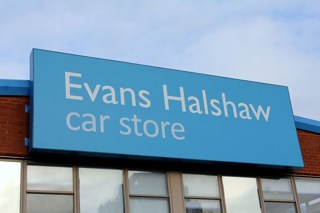Pendragon has delivered an interim statement to share news of a 57.9% growth in underlying profit before tax as revenues and profits continued to decline amid mass site closures during Q3.
Reporting its financial performance during the period from July 1 to September 30, 2019, the former top ranked AM100 car retail group said that underlying profit before tax of £3 million represented an increase of £1.9m year-on-year (Q3 2018: £1.1m).
But as its revenues from new car sales rose by 11% and aftersales revenues rose by 0.7% on a like-for-like basis during the period, group revenues slipped by a further 3.6% as revenues from used car sales declined by 16.7%, it said.
Gross profit from new cars rose by 2% like-for-like but suffered a 17.3% decline in used cars and 2.4% decline in aftersales, meanwhile.
Site closures
Last month Pendragon announced in its interim results statement for H1 2019 that it planned to close 22 of its Car Store used car supermarkets and one vehicle preparation centre after detailing a £32.2m underlying pre-tax loss in its H1 2019 financial results.
The final two of the 22 planned Car Store closures were completed on October 18.
The group initially declined to comment on suggestions made by an AM source that its restructure of the business would result in 1,300 job losses, but a spokesperson later claimed the figure was "off the mark" as the interim statment detailed a reduction in workforce of at least 600.
AM also learned this week that a second vehicle preparation centre, in Hull, was closed earlier this month.
The facility, not featured in the group’s disclosed plans featured in its earlier interim statement, had been part of the Evans Halshaw franchised retail operation and had served “all Hull sites along with Vauxhall Beverley, Citroen-Peugeot York, Nissan Doncaster and Peugeot Doncaster” a source revealed.
In today’s (October 22) Q3 results statement, Pendragon said: “The Group returned to underlying profit before tax during the quarter, with performance levels improving steadily through the period.
“Good progress has been made with each of the planned operational improvements previously disclosed."
It added: “The growth in sales was partially offset by lower margins from a combination of challenging economic conditions and our planned efforts to more naturally achieve manufacturer targets to minimise pre-registered vehicles.”
Reduced used car stock
Also central to Pendragon’s plan to cut costs and improve profitability was an effort to reduce excess used car stock.
Pendragon held £458m worth of used car stock at the end of 2018, compared to £372m a year earlier.
However, an accelerated programme during the second quarter of 2019 aimed to reduce the level of aged, pre-reg and ex-demonstrator stock to 38% of used stock units held on April 1.
In its latest results statement, the group confirmed that its overall sales volumes had been lower as it focussed on “rebuilding both the quantity and quality of the age-profile of the stock”.
It said that the programme had resulted in an improved profile which had brought an increase in used vehicle gross margin rates through the period, from 5.9% in July, to 7.6% in August and then to 8.4% in September.
“Overall for the quarter, the gross margin rate on used vehicles was 7.3%, in line with 2018,” it said.
“Gross profit was down 17.3% on a like-for-like basis (UK motor division down 11% and Car Store down 49% on an LFL basis) principally driven by the lower levels of sales.
“The stock profile was in line with our expectations at the end of September and is now well positioned ahead of Q4.”
'Encouraging' performance
At Pendragon’s Pinewood Technology DMS business revenues grew by 13.9% during Q3 as gross profits rose by 16.3%.
Revenues from its leasing business also grew by 4.1%, with a corresponding 18.1% rise in gross profits across the period.
The group said that, while it considered the improved performance during the period “encouraging”, it continued to expect economic and market conditions to be challenging, with the ongoing uncertainty around Brexit impacting consumer confidence.
It added: “The full-year underlying loss before tax remains in line with the Board's expectations.”

















Login to comment
Comments
No comments have been made yet.